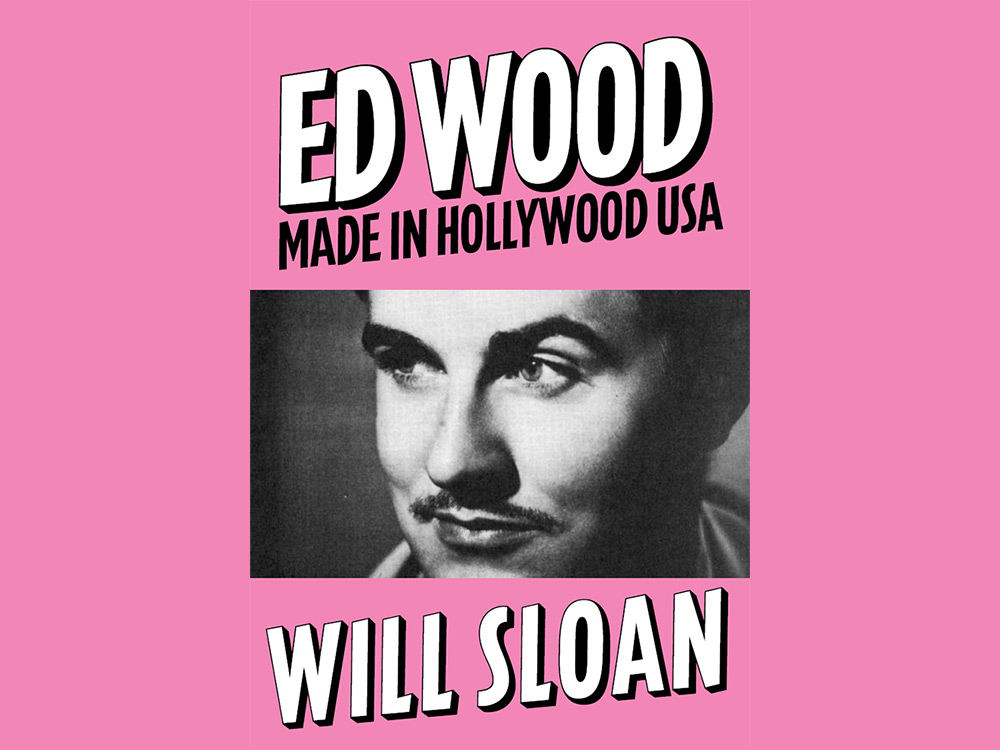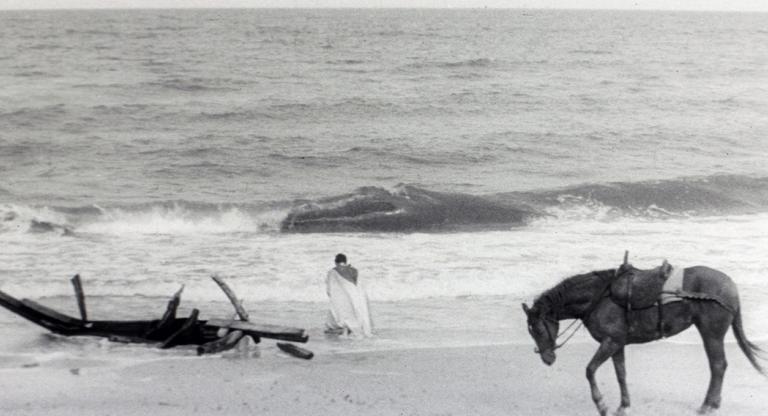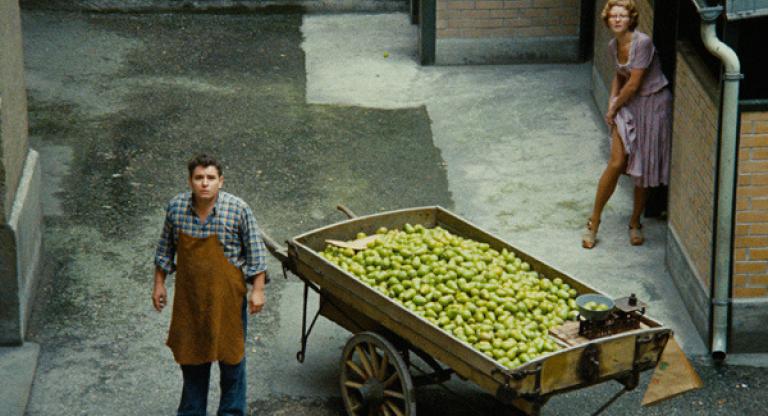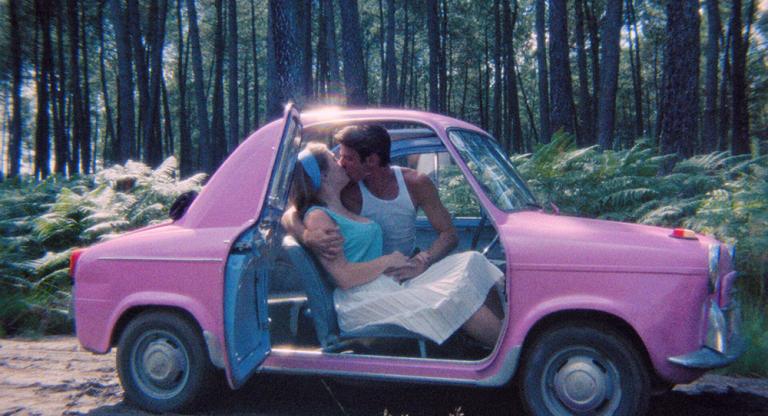What is there left to say about Edward D. Wood, Jr. that hasn’t already been in the 45 years since he was crowned the “Worst Director of All Time” in Harry and Michael Medved’s 1980 book, The Golden Turkey Awards? The numerous waves of revivals that Wood has received over the past four decades have produced everything from a beloved Disney biopic by Tim Burton to countless reissues of his cinematic and literary output—the most recent of these, Severin’s essential Hard Wood: The Adult Features of Ed Wood, collects the films that were very much not featured in Burton’s—and numerous truly exhaustive deep dives into the minutia of his work.
Yet, in all that time, there hasn’t been a single expansive, but easily digestible critical study of Wood that takes all of the disparate strands of his life and career—no matter how disreputable—into account until the recent publication of writer, podcaster, and programmer Will Sloan’s monograph, Ed Wood: Made in Hollywood USA. Beyond offering a persuasive argument for Wood as an important—if, and this is a big if, accidental—figure in American cinema history, the book is a hugely enjoyable tour through the trajectory of exploitation and adult cinema during the middle of the 20th century, as the roadshow circuit gave way to sexploitation and eventually hardcore.
I spoke with Sloan in advance of tonight’s screening of his personal 16mm print of Plan 9 from Outer Space (1957) at Metrograph. Our conversation has been edited for length and clarity.
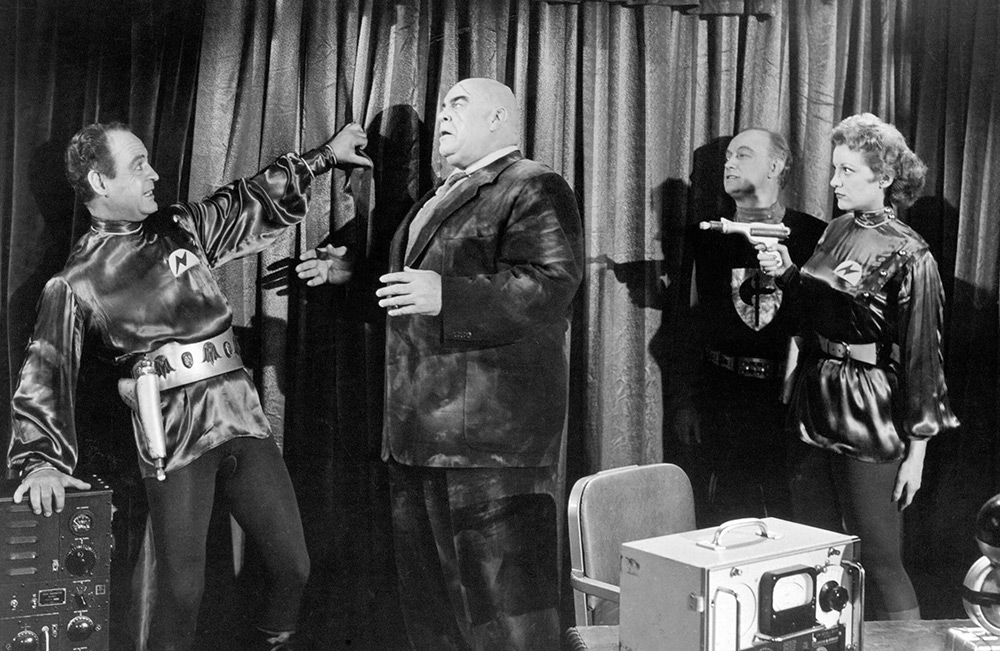
Elizabeth Purchell: You’ve been screening a handful of Ed Wood’s films on your book release tour. How have the reactions been to those? I don’t know how many times you've seen those films with audiences, but have you noticed that kind of changing with this latest round?
Will Sloan: Well, it's funny. I think one of the prime reasons I wanted to write the book is because of seeing Glen or Glenda with audiences over the years. I remember seeing it, like, even 10 years ago and it having a different kind of reaction. I remember seeing it in 2019 with an audience that was largely queer and trans and feeling it was kind of like a roller coaster, honestly, because the audience was there to empathize with it. They were rooting for Ed Wood, which is not, I think, how it used to be received. But also at that time, I could feel the audience be a little frustrated that the movie wasn't quite as progressive as you might want it to be. I've seen it a couple of times in the last year, and when I just saw it at my Toronto launch, I felt the audience really, really going with it. I felt the audience having a good time with it and laughing in the right spots—because it is a funny movie—but also cheering at the right spots and being respectful to the movie while also having a good time with it. I feel like, at least on this round, the alchemy in the audiences I've been seeing it with has been really nice.
EP: How did you come to Ed Wood in the first place?
WS: When I was seven years old, I think I asked my dad what the worst movie of all time was, because I guess I just assumed that my parents would know the answer to that like they knew the answer to everything. And because the Tim Burton movie was new at the time, I think my dad had seen it. So he said, “Oh, it's Plan 9 from Outer Space.” And I think he might've also been mixing it up with Robot Monster [1953] a little bit because I remember him telling me about “a movie where there's a gorilla with a diving helmet and it had a scene where a guy was wrestling an octopus, but the octopus was fake and he was moving its arms.” So, in his head, I think he was mixing together a couple different bad movies, but that's what led me to Ed.
It made a powerful impact on me when I was seven years old. And then, just over the years, learning more about Ed and learning more about his entourage made me more fascinated. When you watch Plan 9 from Outer Space, virtually everyone on screen has an amazing story, so you can spend your life just learning about all these people, whether it's Criswell, Vampira, Tor Johnson, Paul Marco, Bunny Breckinridge.
EP: I feel like the thing that really drives the obsessions that people have with figures like Ed Wood is developing this fondness, not just for the filmmaker, but just everyone in their social scene. I mean, when I found out about Criswell's friendship with Mae West and the fact that she did an original song about him…
WS: Ed Wood is an amazing locus of so many different Hollywood types. There’s something about his movies that I think flattens all of Hollywood space and time—all of Hollywood's class hierarchies—into this one cemetery set. You’ve got people who were big stars like Lugosi, and then you've got Paul Marco and Criswell and Vampira, and here they are all together. The fact that he was this connector of all these different kinds of people is amazing.
EP: Was there anything that you came across during your research that truly surprised you?
WS: Well, I have you to thank for uncovering a really incredible piece of Ed Wood's lore, which is that letter that he wrote to Letters from Female Impersonators from the early 1960s, where there's a picture of him as Shirlee. I'm being mindful about what pronouns I'm using for Ed Wood here, because I think, based on what I've read, he preferred he/him pronouns, even though when he was Shirlee, he was Shirlee. It's a bit of a complicated thing. That article, which has the picture of him as Shirlee, it has him sort of giving his autobiography in two pages about his journey to drag. It's fascinating and it's also a little frustrating because it hints at this whole other world, you know? It hints at whole other sides of Ed Wood that we might not have information about and that only he knew. That’s one thing that I was really happy to find.
EP: Kind of related to that, I think the thing that was really shocking to me was spotting Virginia Prince in Glen or Glenda [1953]. When I first started looking into these old female impersonation magazines, I always, in the back of my head was like, “What if I find something by Ed Wood in one of these?” I feel like he was very much a part of that world and part of that social scene. If he was actually trans, he would’ve transitioned. And so the fact that he didn’t…
WS: As you've pointed out, he had more access to information than most other cisgender heterosexual men of his time did. Perhaps he would’ve identified as genderfluid now, but that's just me speculating. I'm not sure.
EP: Even Virginia Prince was someone who was very outspoken about the fact that she was a crossdresser and not transgender, but then later actually transitioned in the ‘70s or ‘80s. So maybe Ed would’ve evolved on it had he lived past the 70s.
WS: I think [there’s been an] important change in Ed Wood scholarship. In the Tim Burton movie—which is admirably non-judgmental towards his crossdressing—it kind of comes from the angle of… In fact, I think there's a line in that movie where he says something like, “Oh, I love sex with women. Wearing their clothes makes me feel closer to them.” So, it sort of comes at it from the angle of… He’s so heterosexual that he liked wearing women's clothes. And there's that documentary, The Haunted World of Edward D. Wood Jr. [1996], which has a lot of good stuff in it. But it's so aggressively insistent on reassuring you that he's straight. It has like 10 minutes of every one of his friends from the 1950s saying, “Ed was not a homosexual.” I feel like there have been a lot of discoveries made in his writing and his films in the last 20, 30 years to sort of complicate that and suggest that there was something more interesting going on there.

EP: What I love so much about Glen or Glenda is that it's a movie that fully inhabits this sort of closet mindset. It is beating you over the head with, “No, of course these are cisgender men. Like who doesn’t want to dress like a woman? You know, wearing a man's hat will make you go bald, which is why we should all wear women's hats.” It just twists the logic in such an insane way to try to make sense of his own thoughts on what he was doing back in the day.
WS: If Ed was here today, I would love to talk to him about this, because I sense an evolution just in the way that he depicted it in his films over the years. By the time of Take It Out in Trade [1970] and Nympho Cycler [1971], he's much more comfortable. The drag in those movies is so much more matter of fact. And certainly in his novels as well. I'd love to ask him if certain of those tendencies you were describing in Glen or Glenda were him, or if it was him coming up against what was permissible in a movie at that time, or if it was a combination of both.
EP: You just mentioned Take It Out in Trade and Nympho Cycler, and I think one thing that I've been really fascinated by is this recent focus on the true deep end of the Ed Wood catalog. How did you find yourself wading into this almost endless abyss of… the films and the books and the short stories and the porno loops and all that?
WS: Reading about that era of his life in Nightmare of Ecstasy made it sound very fascinating, just because of how depraved his life seemed to have gotten at that time. I obviously had a kind of lurid interest in that material. When Necromania [1971] was rediscovered in the 2000s and came out on DVD, I was very impressed by how much it felt like an Ed Wood movie—in a really kind of impoverished way, with all of his aesthetic interests, as well as a lot of his thematic interests. I really loved when The Only House in Town [1971] became available, because that's a movie that, I mean, is plainly unfinished. And it probably would’ve been a worse movie if he had finished it, because there's something in the unfinished quality that gives it a weird dreamlike ambience and only Ed Wood is giving me that particular dreamlike ambience. Like, I really think certain of his films—The Only House in Town and Night of the Ghouls [1959], especially—feel more like a dreamscape on film than just about anyone I’ve seen except for David Lynch.
One thing I'll just add, though, is I have sat through a ton of those porno loops that he made; the Swedish Erotica stuff. And I mean, I only recommend that for the most severely deranged Ed Wood-ologist. But I do love when you get a little crumb of his personality in them. It really feels like panning for gold. There's one called, I think, Sex Seance. Seeing that, it’s like, “Yes, that’s him. That’s the director of Night of the Ghouls.”
EP: What is it about him that you think generates such obsessiveness in people?
WS: He really does have a consistent personality in these movies. It's multi-pronged. It's the thematic interests: his anxiety over issues of gender and sexuality. He's very interested in the performance of gender. And you can see this in Glen or Glenda, Plan 9 from Outer Space. You can see it in The Young Marrieds [1972]. I think there's something about his tenacity as an artist that's very powerful, even in conditions as impoverished as Necromania—the fact that he was still identifiably making an “Ed Wood film.” The fact that, from the accounts of everyone who was present on the set of Necromania, he was just in his element. He was so happy to be directing again. He really carried himself like a director. So, I think you see the artist who created Glen or Glenda is still visible towards the end of his career.
EP: What would you say it is that separates him from other filmmakers with similar trajectories like Ray Dennis Steckler, Doris Wishman, or Andy Milligan?
WS: Well, it's easy to say what separates him from somebody like a Roger Corman or a Herschell Gordon Lewis, which is that he had no entrepreneurial side at all. And that would apply to Doris Wishman as well. Some of the things that separate him from someone like Ray Dennis Steckler is just that he wasn't able to keep his life together. The alcoholism became so debilitating that he wasn't able to sustain a career in the way that Ray Dennis Steckler was, even though Ray Dennis Steckler's career also became very subterranean after a while. But beyond that, I think it comes back to that artistic personality, which is so unique. From Glen or Glenda to Necromania and The Young Marrieds, there's a real joy of filmmaking there. I think you can still see the boy who loved going to horror movies and westerns in Poughkeepsie, New York. You can still see that boy in those later movies in a way that you don't with, say, Jerry Warren or Ray Dennis Steckler after a while. You feel Ray Dennis Steckler really getting ground down by what he had to do with his porn films. I don't think I feel that with Ed Wood's porn films.
EP: Do you think that there would be this level of interest in him had all this material been available—or at least easier to find—when the revival started happening in the late ‘70s?
WS: I really wonder what would’ve happened if Take It Out In Trade was out there, because I contend that it's actually a pretty good movie. It's pretty fun, and I wonder if it would’ve complicated people's understanding of him. Maybe not, though, because it is a softcore sexploitation film, so people might’ve still dismissed it. I think it definitely helped that Ed Wood wasn't around to defend himself, so a sort of myth built up around him. It was easier for—God love them—Harry and Michael Medved to sort of make fun of him. It was easier for a lot of people to make fun of him if he wasn’t there. Also, it took so long for the details of his life to really coalesce in things like Nightmare of Ecstasy. So there was a strong air of mystery around those films that, obviously, if the internet had existed at the time, the reception would’ve been different. I think a lot of the people who love Plan 9 from Outer Space grew up watching it on TV and being sort of baffled by it. And now for every movie, you can go online and find out what it is. You can find the director's Facebook page. So that would’ve been different.
I definitely wonder what it would’ve been like if it had been called the Worst Movie of All Time and Ed Wood had hit the convention circuit, or if he’d gone to one of the Medved screenings and been a good sport about it, like Tommy Wiseau is in these days. I'm not sure what that would’ve looked like.
EP: One of the things I liked about the book is the way that you sort of—and I don’t know if this is the right way to say this—mount a defense of the Medved brothers, who of course are a controversial piece of all this.
WS: Well, I have a huge residual affection for the Medved’s books because of how much they meant to me as a child. It’s funny, people talk about how snarky they were or how disrespectful they were to those movies, but when I read those books, each entry felt like a portal into another world. It was fascinating to learn about these strange and exotic movies. I know that after the Medveds made Ed Wood and Plan 9 from Outer Space famous, they learned more about Ed Wood. They started going down that rabbit hole. They started interacting with all the people who knew Ed Wood. Talking to them today, I think they have a real appreciation for Ed Wood as a tenacious underground filmmaker. I think they regard his films as so-bad-they're-good. And, in fairness… If you see a flying saucer on a string, it's pretty funny.
But I mean, we probably wouldn't be talking about Ed Wood, at least not in the same way, without them. To call Plan 9 from Outer Space the Worst Movie of All Time and him the Worst Director of All Time was this powerful opening volley that pretty much all discussion about him has been in response to. I ultimately think that was valuable.
EP: Do you feel protective of Ed Wood, especially after having consumed so much of his work, writing this book, and presenting his films? Do you feel that degree of closeness to him after all of this?
WS: It's an interesting question. I find that people generally like Ed Wood or they feel some affection for him. And I think the Tim Burton movie did a lot for this. People have a rudimentary understanding of the fact that he was a well-meaning guy on the fringes of Hollywood trying to make art. So I think people come to him with a bit of an open heart. I think that what I feel protective about is that the label of Worst Director of All Time can create an obstacle to appreciating certain of his movies that don't deliver in the same way that Plan 9 from Outer Space does. Like, Jailbait [1954] isn't laugh-a-minute in the same way that Plan 9 from Outer Space is. But I do think Jailbait is very strange and disorienting, and I want people to appreciate that. So yeah, I'm hoping to give people some lenses through which to view some of this other work and enjoy this other work that isn’t just, “it’s so-bad-it’s-good.”
Plan 9 from Outer Space screens this evening, October 9, at Metrograph on 16mm as part of “Will Sloan Presents Plan 9 from Outer Space.” Author Will Sloan will be in attendance to introduce the film.
